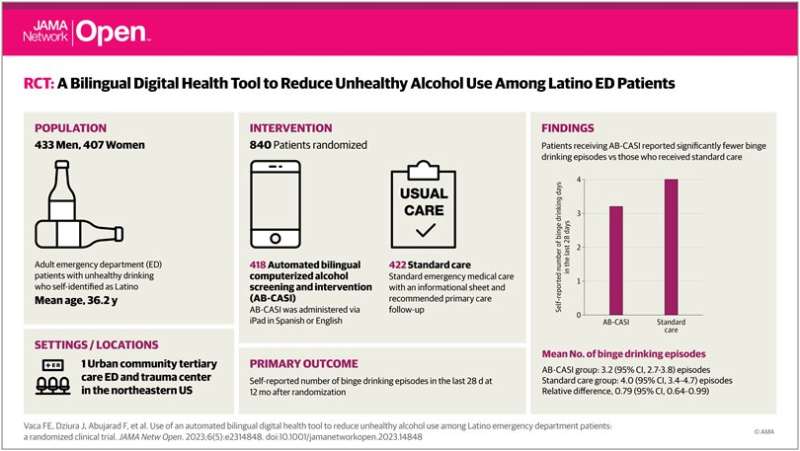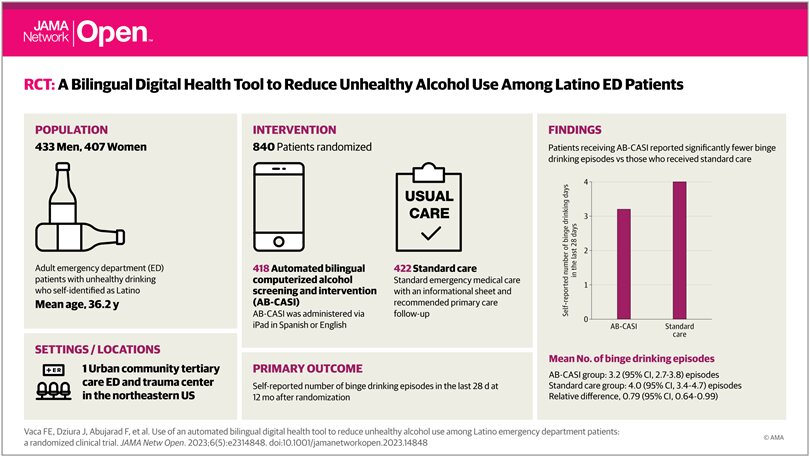
An automated, bilingual, computerized alcohol screening and intervention health tool is effective in reducing alcohol use among Latino emergency department patients in the U.S., according to a study led by the University of California, Irvine.
“This is the first bilingual, large-scale, emergency department-based, randomized clinical trial of its kind in the country focused on English- and Spanish-speaking Latino participants,” said lead author Dr. Federico Vaca, UCI professor of emergency medicine. “Our aim was to overcome well-known barriers to alcohol screening and intervention from the emergency department while addressing the high disease burden and health disparities related to alcohol use disorders in this population.”
The clinical trial involved 840 self-identified Latino adults with unhealthy drinking. Recently published online in the journal JAMA Network Open, the findings revealed a substantial reduction in the number of binge drinking episodes within the last 28 days among those who had used the AB-CASI health tool compared to the standard care group. While both study groups experienced some decrease in alcohol use after one month, the AB-CASI group showed significant and sustained reductions at the 12-month mark.
“This tool offers considerable promise in addressing alcohol-related health disparities and should be considered for routine emergency department screening and intervention, as we know that incremental sustained reductions in alcohol use can benefit both individual and public health,” Vaca said.
The research team also included doctors and healthcare professionals from the Yale School of Medicine, the Yale School of Public Health and the University of Texas at El Paso.
More information:
Federico E. Vaca et al, Use of an Automated Bilingual Digital Health Tool to Reduce Unhealthy Alcohol Use Among Latino Emergency Department Patients, JAMA Network Open (2023). DOI: 10.1001/jamanetworkopen.2023.14848
Journal information:
JAMA Network Open
Source: Read Full Article
